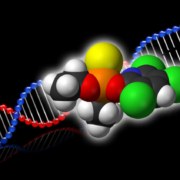The Bottom Line on Folic Acid
Based on the studies covered in the Tuesday and Thursday posts, you may be confused about what you should do when it comes to folic acid, especially if you’re pregnant or thinking about getting pregnant. I read a lot of research to come up with this analysis and here’s what I found.
There are three areas of concern:
- Too much folic acid could mask a B12 deficiency during pregnancy; there’s no research to support that. It can happen in the elderly who have problems absorbing B12, but doesn’t seem to happen in women of child-bearing age.
- Excess blood folic acid may be related to tumor acceleration; there’s some rodent research to suggest some relationship but nothing in humans. They have also cited research on folic acid supplementation and prostate cancer. I examined numerous studies and there’s no clear relationship; some show some type of relationship, others show a reduction in risk.
- There may be some effect on the children of mothers who get too much folic acid; there’s one study that suggest an increase in asthma in offspring but most studies seem to demonstrate a protective effect.
Where does that leave us? Most of the studies are not done very well when it comes to folate and folic acid intake. The folic acid intake is dependent on Food Frequency Questionnaires, which have severe limitations. The methodology for determining blood folic acid levels vary from study to study. The associations between intake and problems are weak at best.
But when it comes to pregnancy, there may be a solution. In a recent study, researchers examined the relationship between neural tube defects and the red blood cell folate level. As the estimated levels increased, the risk of neural tube defects decreased. The level which seemed to provide the lowest risk of neural tube defects was greater than 1,000 nmol/L. This was a single study and used interesting statistical techniques, but it seemed to provide for more precise folic acid supplementation.
The Bottom Line
The benefits of folic acid on neural tube defects have been impressive, and the concern over excess supplementation may be legitimate or not. It could be that women process folic acid too well or not well enough and that could impact dietary and supplementation intake. Research on the MTHFR polymorphisms continue with no recommendation for its diagnostic use at this time.
If you’re concerned, talk with your physician about getting a blood folate test. Levels of RBC folate levels can be estimated from that result. One key point: the test would be most beneficial before conception because neural tube defects happen in the first month of pregnancy. Still it’s one way to be more cautious in spite of the limited risk.
Let me close by saying that in all the research I did, what I could not find is any association between reasonable folic acid intake and miscarriages or other issues during pregnancy. Folic acid appears to be safe and protective and should be a part of prenatal nutrition.
If you want to know more about having the healthiest baby you can, check out Healthy Babies: From Conception to Breastfeeding. It’s available as a CD or MP3 download.
What are you prepared to do today?
Dr. Chet
Reference: BMJ 2014;349:g4554 doi: 10.1136/bmj.g4554









